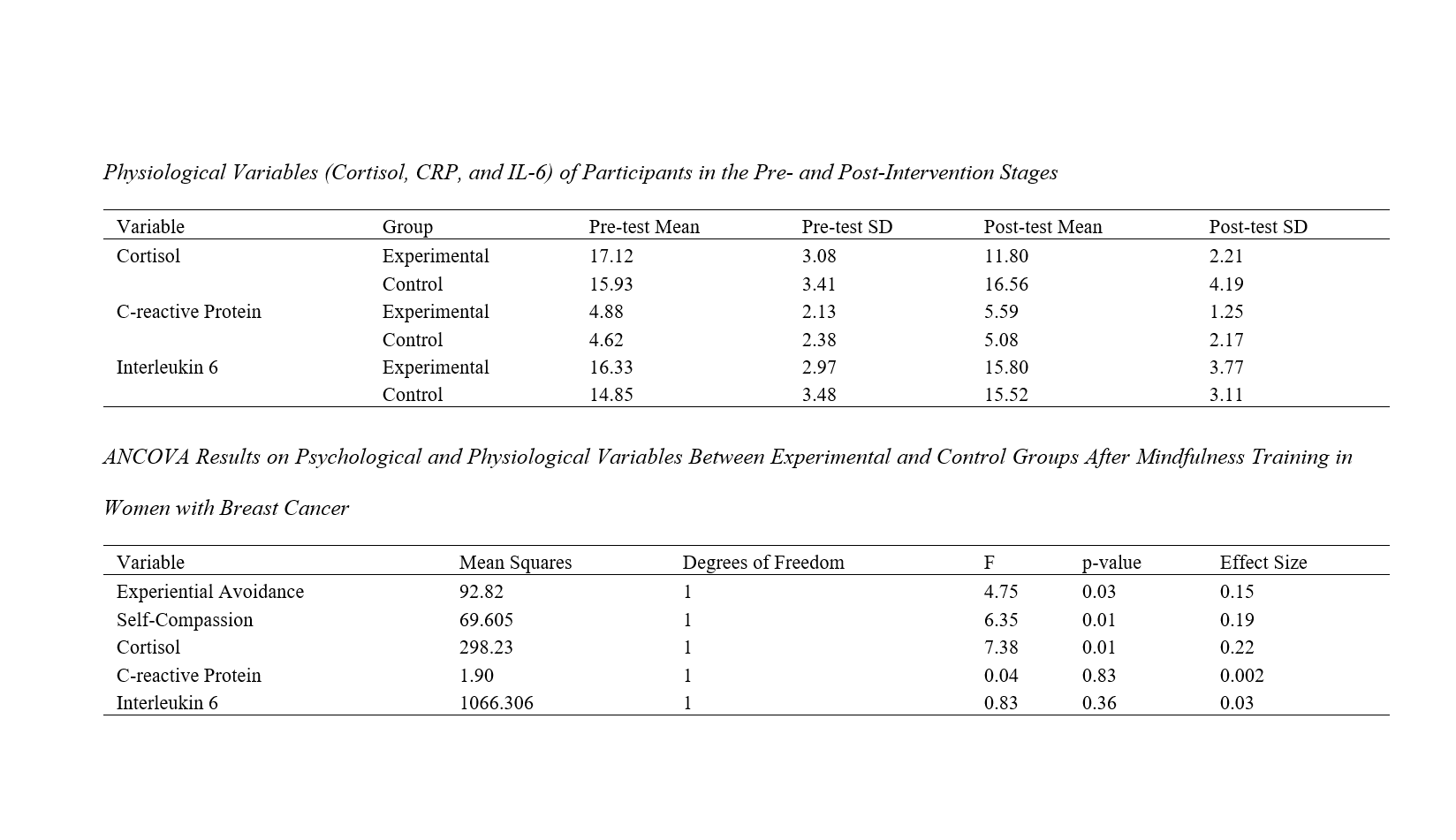Effectiveness of Mindfulness Training on Experiential Avoidance, Self-Compassion, and Physiological Indices in Women with Breast Cancer
Keywords:
Mindfulness, experiential avoidance, self-compassion, breast cancerAbstract
Objective: This study aimed to examine the impact of mindfulness training on experiential avoidance, self-compassion, and certain physiological indices in women diagnosed with breast cancer.
Method: This applied research was conducted as a quasi-experimental study with a pre-test, post-test, and control group design. The population included all women with stage 1 and 2 breast cancer who were under medical care after completing chemotherapy or radiotherapy at Shahid Tajrish Hospital in 2020-2021. A convenience sampling method was used to select 40 female breast cancer patients, who were equally divided into an experimental group (20 participants) and a control group (20 participants). Data were collected using the Neff's Self-Compassion Scale (Neff, 2003), the Bond et al.'s Experiential Avoidance Questionnaire (2011), and physiological indices. Mindfulness training, based on the protocol by Lengacher et al. (2019), consisted of 8 sessions of 90 minutes each for the experimental group, while the control group received no intervention. Data were analyzed using covariance analysis.
Findings: The results indicated that mindfulness training significantly increased self-compassion (F = 6.35, p < .05) and decreased experiential avoidance (F = 4.75, p < .05) in women with breast cancer. Additionally, the training significantly reduced cortisol levels (F = 7.38, p < .05), but did not have a significant effect on the concentrations of IL-6 (F = 0.83, p > .05) and CRP (F = 0.04, p > .05).
Conclusion: Considering the current findings, it can be said that mindfulness training is effective in improving the psychological condition and reducing stress in women with breast cancer.
Downloads

Downloads
Additional Files
Published
Issue
Section
License

This work is licensed under a Creative Commons Attribution-NonCommercial 4.0 International License.




















